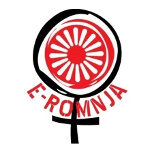
Funding: European Commission through the Citizens, Equality, Rights and Values Programme - CERV-2024-DAPHNE
Partners
Universita Cattolica Del Sacro Cuore
Fondazione ISMU – Iniziative e Studi sulla Multietnicità
Fondazione Caritas Ambrosiana
HESED – Health And Social Development Foundation
E-Romnja Association
Project total budget: 452,960.07 Euro
Numerous studies and reports consistently highlight the high prevalence of gender-based violence (GBV) experienced by Roma women in Europe. This violence takes many forms, including domestic abuse, sexual harassment, forced marriages, trafficking, and other forms of exploitation. The intersectional discrimination they endure, along with health inequalities, limited access to services and support systems, and pervasive stereotypes among both Roma communities and health and social professionals, makes escaping GBV even more challenging.
In response, the ROMANI project aims to combat GBV within Roma communities and ensuring equal access to healthcare through a comprehensive approach. This involves engaging Roma communities, promoting their empowerment, while also collaborating with relevant health, social, and anti-violence services and key stakeholders.
The project will be implemented in Bulgaria, Italy, and Romania, where the situation for Roma women is particularly concerning. This effort is bolstered by the support of four public authorities at both national and local levels in Bulgaria and Italy.
The ROMANI project has the following specific objectives:
→ Analyzing the factors that facilitate the escape from GBV among Roma women;
→ Promoting empowerment within Roma communities, working with both Roma women and men to combat gender stereotypes and the root causes of GBV;
→ Equipping health and social professionals with the cultural sensitivity and competencies necessary to support Roma women effectively;
→ Strengthening the connection between Roma women and health services and anti-violence facilities.
The ROMANI project adopts an interdisciplinary and participatory approach that actively involves Roma women. By employing a variety of innovative techniques, ROMANI will utilize a bottom-up perspective to capture the lived experiences and key issues directly from Roma communities and relevant stakeholders, addressing the root causes of GBV.
The project is financed by European Commission through the Citizens, Equality, Rights and Values Programme - CERV-2024-DAPHNE
Funded by the European Union. Views and opinions expressed are however those of the author(s) only and do not necessarily reflect those of the European Union. Neither the European Union nor the granting authority can be held responsible for them.

